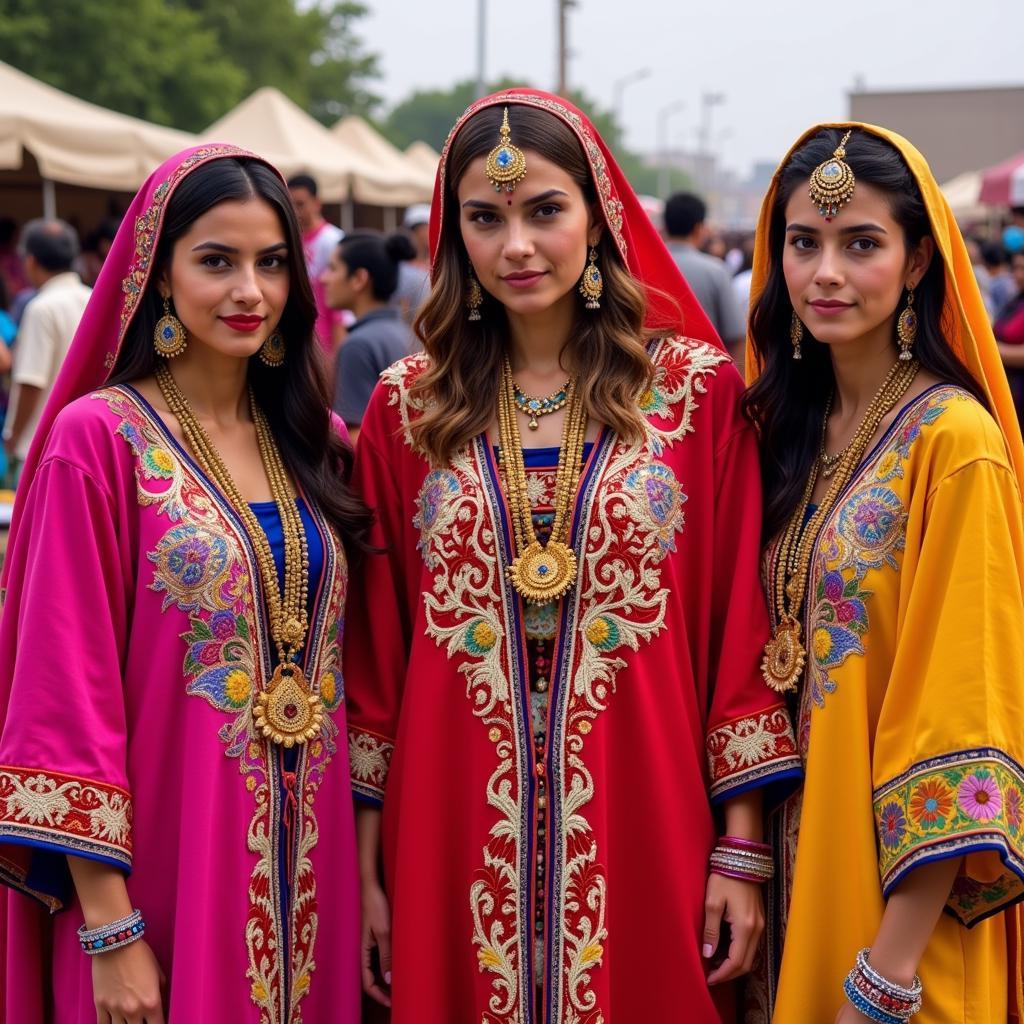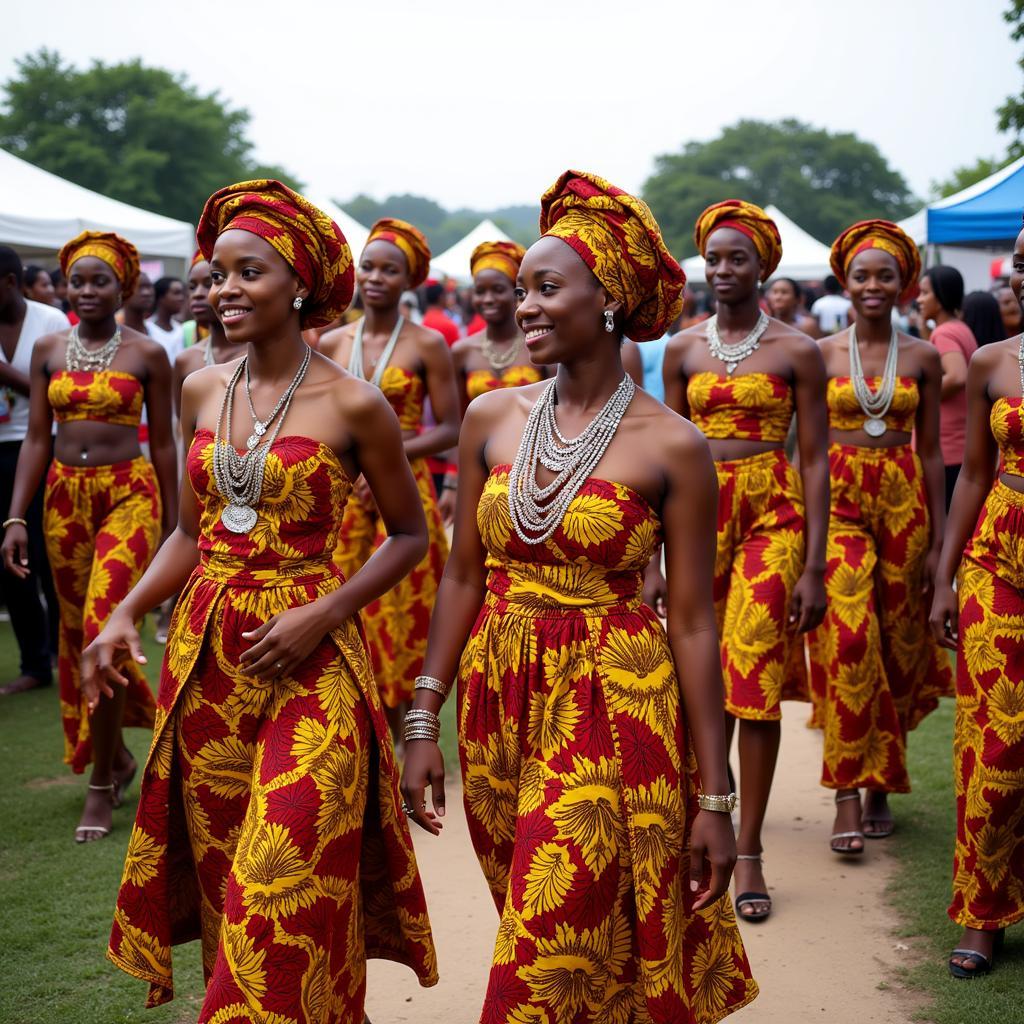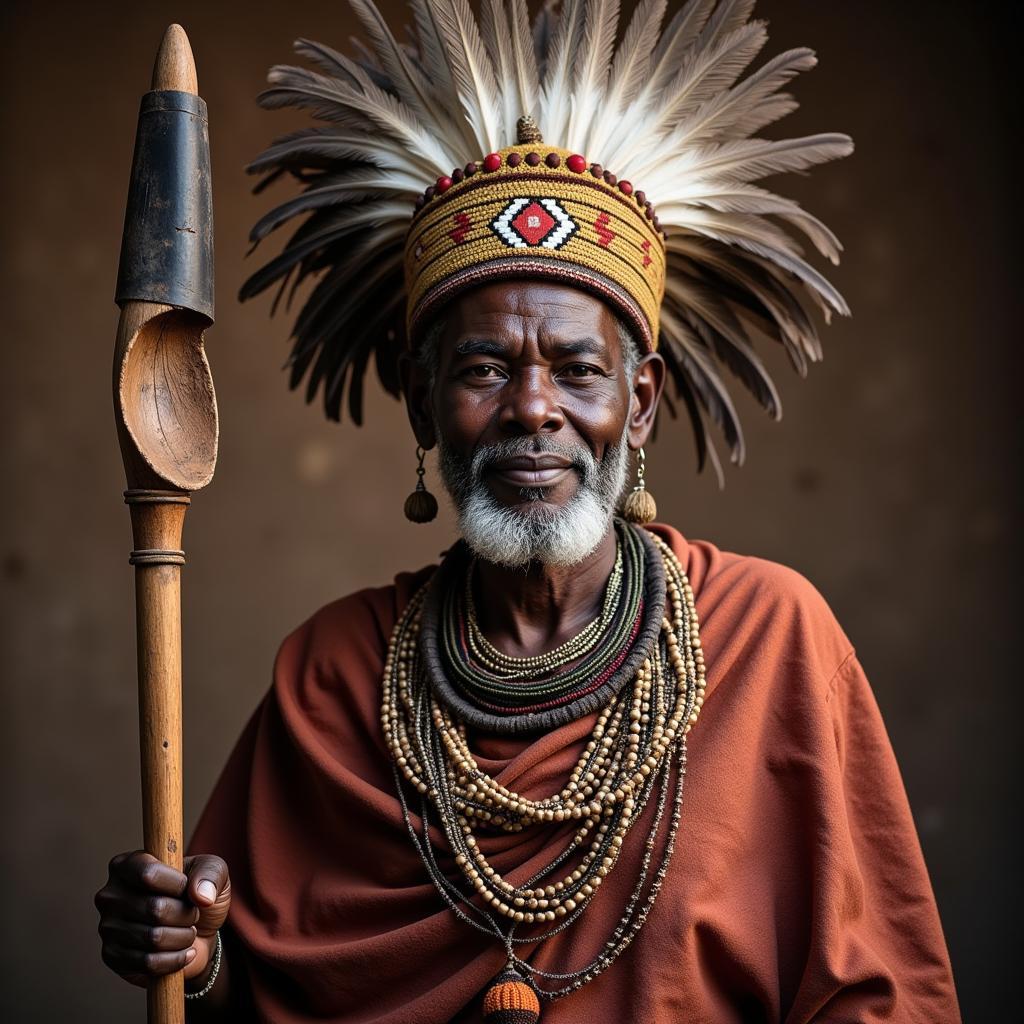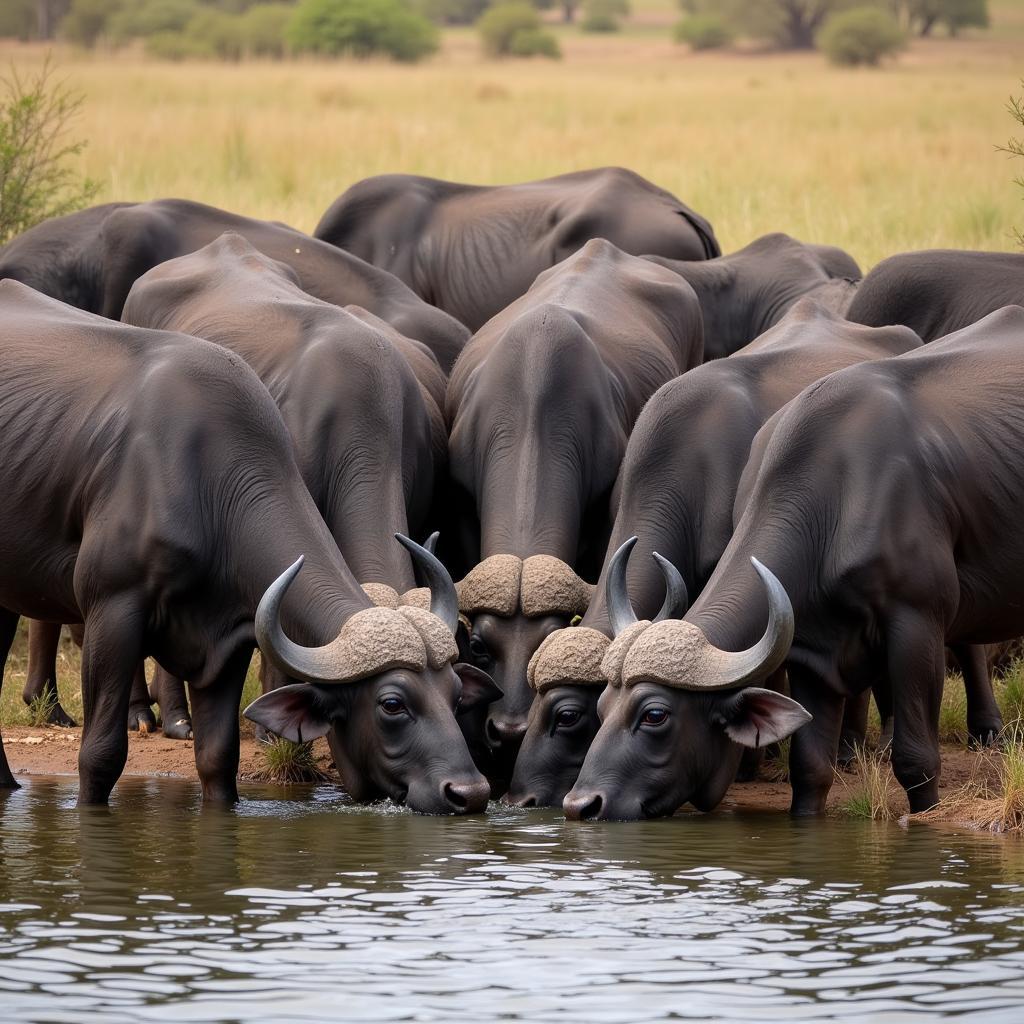Exploring the Diverse World of African Countries’ Native Dress
Africa, a continent brimming with rich history, vibrant cultures, and diverse traditions, offers a captivating tapestry of native dress. From the flowing robes of North Africa to the intricate beadwork of Southern Africa, each region boasts unique garments that reflect its heritage, beliefs, and way of life. Understanding the intricacies of African clothing styles provides a fascinating glimpse into the continent’s soul.
A Journey Through Style: Unveiling Regional Distinctions
 Women in vibrant North African dresses
Women in vibrant North African dresses
While the term “African clothing” is often used broadly, it’s crucial to remember that Africa is not a monolith. Each country, with its own unique history and cultural influences, showcases distinct styles of dress.
North Africa: Elegance and Flowing Silhouettes
In North Africa, countries like Morocco, Algeria, and Tunisia are renowned for their elegant and flowing garments. The djellaba, a long, loose-fitting robe, often hooded, is a staple in many wardrobes, providing comfort and protection from the desert sun. Intricate embroidery and vibrant colors add a touch of opulence to these garments.
West Africa: Bold Colors and Intricate Patterns
West Africa explodes with a riot of colors and patterns. Countries like Ghana, Nigeria, and Senegal are famous for their vibrant fabrics, often handwoven or dyed using traditional techniques. The kente cloth, originating from Ghana, is a prime example, with its geometric designs and symbolic meanings woven into the fabric itself.
 West African ceremony with people in colorful attire
West African ceremony with people in colorful attire
East Africa: A Fusion of Cultures and Styles
East African countries like Kenya, Tanzania, and Ethiopia showcase a fascinating blend of cultural influences in their clothing. The kanga, a colorful rectangular cloth, is widely worn in Tanzania and Kenya. Often adorned with proverbs or sayings, the kanga goes beyond mere clothing, serving as a means of communication and storytelling.
Southern Africa: Beadwork, Animal Skins, and Tribal Identity
Southern Africa, home to diverse ethnic groups, exhibits a unique blend of tradition and modernity in its attire. Beadwork, often intricately crafted and carrying symbolic meanings, plays a crucial role in clothing and accessories. Animal skins, particularly in more rural communities, are used to create garments like the kaross, a cloak worn for warmth and ceremonial purposes.
Beyond Fabric: Understanding the Deeper Meaning
 An African tribal elder in ceremonial dress
An African tribal elder in ceremonial dress
To truly appreciate African native dress, it’s essential to delve beyond the aesthetics and understand the cultural significance embedded within these garments.
- Status and Hierarchy: In many African cultures, clothing serves as a visual indicator of social standing. Elaborate beadwork, specific colors, or styles might be reserved for chiefs, royalty, or those in positions of authority.
- Ceremony and Ritual: Traditional ceremonies and rituals often call for specific attire, imbued with symbolic meaning and designed to connect individuals to their ancestors or spiritual beliefs.
- Storytelling and Heritage: The patterns, colors, and designs woven into African textiles often carry stories passed down through generations. They act as a tangible link to the past, preserving cultural narratives and traditions.
African Dress in the Modern World: A Fusion of Tradition and Innovation
While deeply rooted in tradition, African native dress is not static. Contemporary African designers are drawing inspiration from their heritage while infusing modern sensibilities and global trends. On runways worldwide, African prints and styles are celebrated for their vibrancy and uniqueness.
FAQs: Exploring African Dress
1. What is the most common item of clothing in Africa?
Due to the diversity of the continent, there isn’t one single “most common” item. However, variations of draped or wrapped garments, often rectangular pieces of fabric, are widely worn across different regions.
2. Where can I purchase authentic African clothing?
Supporting local artisans is key! Explore markets and shops during your travels in Africa, or search online for reputable retailers specializing in ethically sourced African clothing.
Ready to Delve Deeper?
This exploration of African countries’ native dress is just the beginning. Contact us at +255768904061, email us at kaka.mag@gmail.com or visit us in Mbarali DC Mawindi, Kangaga, Tanzania. Our team is available 24/7 to assist you. Explore our website for further insights into the captivating world of African culture.

